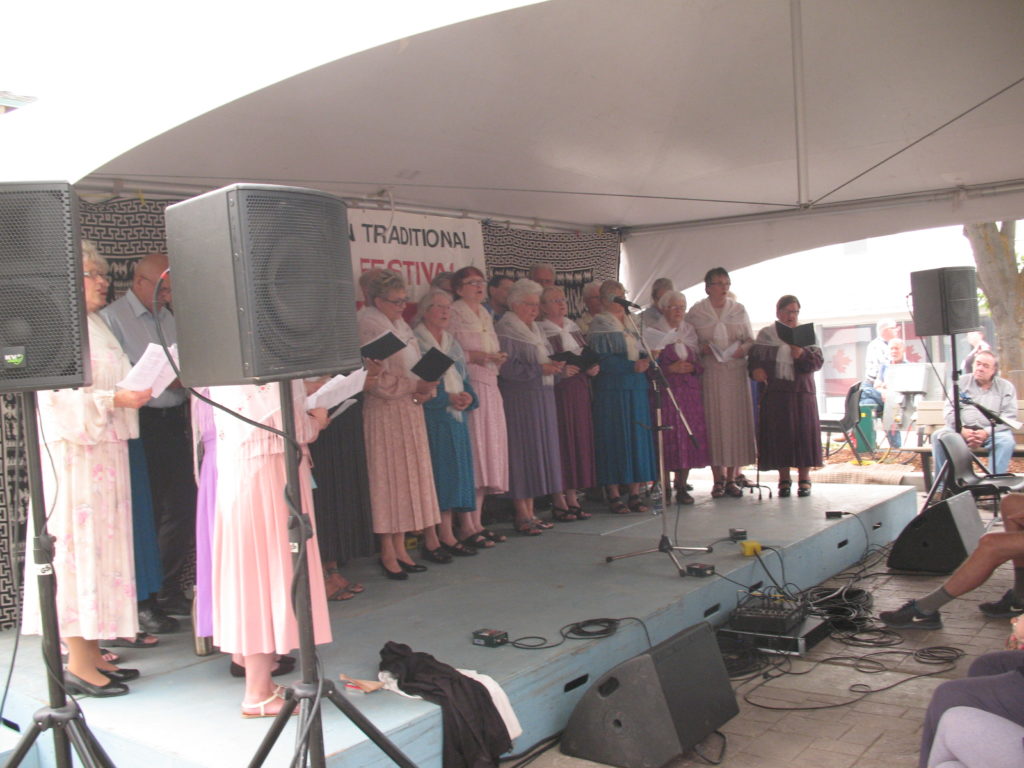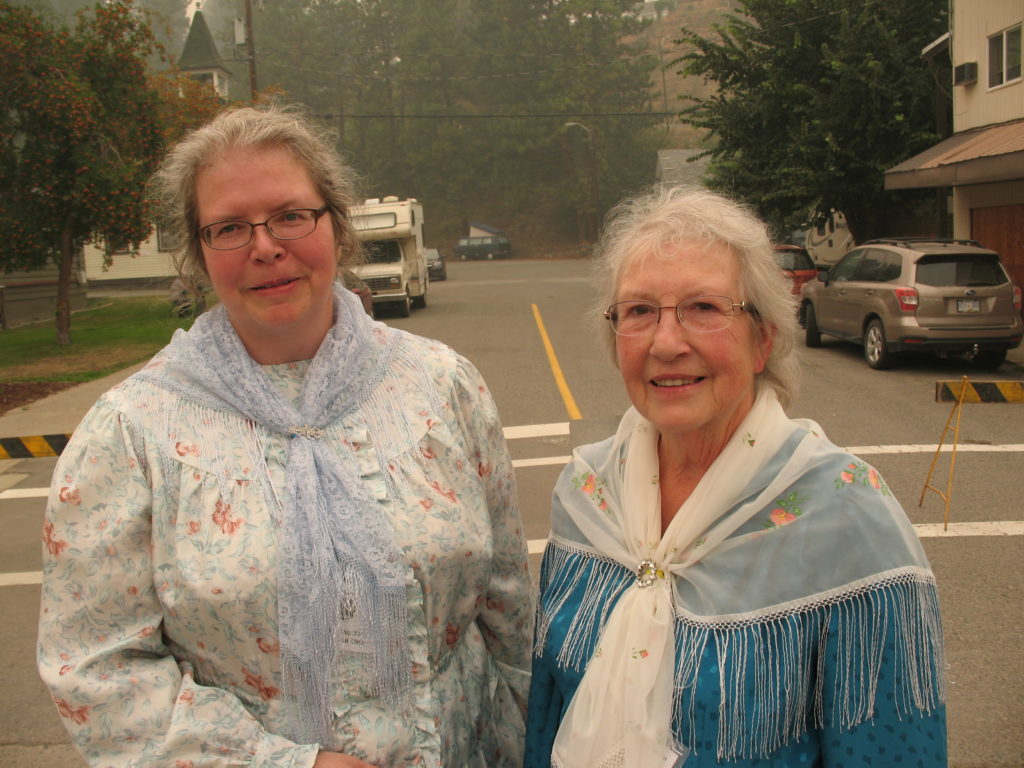
For attendees at the Princeton Traditional Music Festival this summer, the performance of the Doukhobor choir was a “wow” experience. Singing in their native Russian and also English, without instrumental accompaniment, their exquisite harmony calmed and uplifted our spirits.
I called the choir director, Elsie Campbell at her home in Castlegar several days later. She said, “I can’t even read music, but I hear any little mistake.” In her early 70’s and walking with a cane, she’s committed to the preservation of Doukhobor music. “I at times conduct 4 different choirs,” she said, “I don’t want our music to die. I want it to convey the importance of striving for peace, justice, hope, the environment and freedom for all.” She has travelled extensively with Doukhobor choirs, including 3 visits to Russia.

Having heard their music, I wanted to know more about them. Writing on the USCC Doukhobors’ website, D.E. (Jim) Popoff explains the name Doukhobor came from Archbishop Ambrosius of the Russian Orthodox Church in 1785. Wanting to identify a group of peasants as heretics, he referred to them as “Doukhobortsi”, meaning spirit wrestlers. He intended this as derogatory, suggesting they were struggling against the Holy Spirit. The Doukhobors responded, “we are struggling with and for the Spirit of God.” They rejected the church’s practise of worshiping icons.
Like my own Mennonite forbears, late in the 19th century Doukhobors began experiencing increasing pressures to conform and to serve in the military. Led by their leader Peter V. Verigin, in 1895 they burned their weapons and refused military service. Repression followed and Verigin arranged for emigration to Canada, first to Saskatchewan and then in 1908-1912 to the Boundary Kootenay area.
In Russia they had lived communally, and for a time they continued this practice with all land being registered under the name of Peter Verigin. They developed successful commercial enterprises, producing fruits and vegetables, jams, jellies and honey. When Verigin was killed in a rail car bombing in 1924, and the Stock Market crashed in 1929, their way of life was severely disrupted. They had borrowed from the banks for land purchases and development, and could no longer make the payments. It was the end of their communal way of life.
In spite of economic and societal pressures, they clung tenaciously to their beliefs, practises and culture. This effort to maintain traditional ways continues today. “Our schools are in English,” Elsie said. “The children are also taught Russian. Borscht, vereneki (pyrogies), potato salad and other traditional dishes are still prepared. We don’t have the Bible but many of our teachings and beliefs come from the Bible. Bread, salt, and water are important symbols in our faith. They represent hospitality.” In the realm of spiritual beliefs, Doukhobors differ from some Protestant and Catholic teachings. For example, they don’t accept the miracles of Jesus.
According to Popoff, “In struggling for a better life, they determined to use only the spiritual power of love, rather than any form of violence or coercion.” Their motto was (and still is), “Toil and peaceful life.” When a radical splinter group, The Sons of Freedom, created a measure of chaos with such practises as nudity and arson in the 1950’s, the majority of Doukhobors did not follow.
Early in the last century, the world around them was already entering a time of rapid transition. Larger centres offered a glittering array of exciting enticements. Societal values, attitudes and beliefs were changing. For many minority religious and ethnic groups, these societal trends continue to be a challenge today.
Barry Verigin, co-editor of ISKRA, Voice of the Doukhobors, told me, “Encouraging our youth is an issue we take seriously. Our Union of Youth organization sponsors a number of events, including a very popular Youth Festival each May long weekend.”
The 2nd leader of the Doukhobors in Canada, Peter Petrovitch Verigin, counselled the youth to acquire all the positive, constructive aspects of knowledge and skills which were offered through formal education, while at the same time retaining their valuable heritage. “The combination of the best influences from these two sources,” he said, “will prepare you for a life as truly responsible citizens of the world.”
If their current executive director, John J. Verigin, and other Doukhobors like Elsie Campbell are able to successfully transmit their values and beliefs to their youth, the next generation of leaders will be well prepared to make a valuable contribution to Canadian society.

One thought on “Doukhobor Choir Conveys Values”